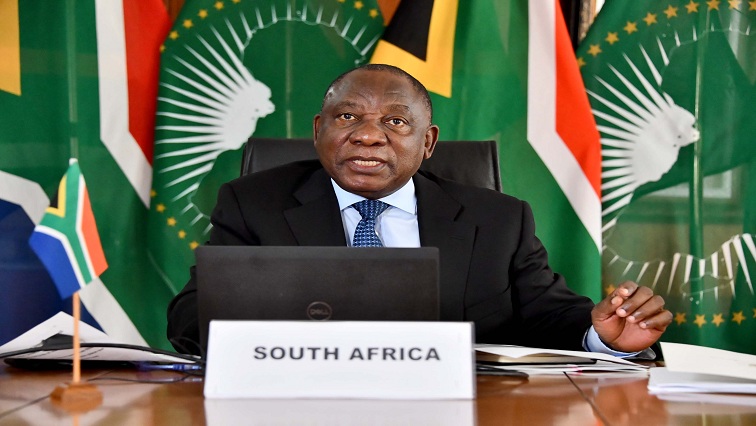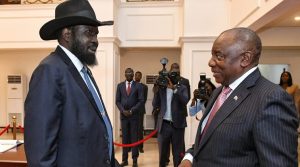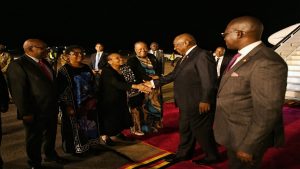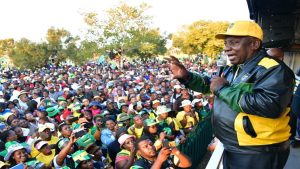African Union Chairperson, President Cyril Ramaphosa, will lead the Africa Day virtual celebrations on Monday.
AFRICA DAY 2020 | THE AFRICA WE WANT #AfricaDay #SilencingTheGuns #COVID19 #BetterAfricaBetterWorld #AfricaResponds #Agenda2063 #TheAfricaWeWant #AUChair2020 pic.twitter.com/3RwqCzgcW3
— Presidency | South Africa ?? (@PresidencyZA) May 24, 2020
This is the 57th commemoration of the establishment of the Organisation of African Unity, now known as the African Union.
From The Desk of the President – Monday, 25 May 2020 – https://t.co/KQ4hPHjGcq . Today marks 57 years since the leaders of 32 independent African nations met in Addis Ababa to establish the Organisation of African Unity (OAU), the precursor to the African Union. pic.twitter.com/wRv5V1OncR
— Presidency | South Africa ?? (@PresidencyZA) May 25, 2020
AU Commission Chair Moussa Faki Mahamat and Youth Envoy Aya Chebbi will also deliver speeches.
COVID-19 pandemic has thrown a spanner into works for almost all countries and continental bodies.
The goals and targets set will have to be shifted to accommodate the new reality of living through a global public health crisis.
This is evident as the AU hosts the Africa Day celebrations virtually on major news channels and online platforms.
President Ramaphosa will deliver the keynote address under the themes “The Africa We Want” as well as “Prepare, Protect, Prosper.”
A special Africa Day Benefit Concert will also take place online which includes giants like Salif Keita and Ladysmith Black Mambazo are part of the line up.
The proceeds raised will be directed to The World Food Programme and UNICEF in support of those most impacted by COVID-19.
History of Africa Day
In 1958, a congress was held in Ghana to both celebrate countries that had reached independence from European colonial rule and plot a way forward to free nations on the continent that were still under colonial rule.
South Africa was not invited to the congress as it was governed under apartheid.
Much of the decolonisation of Africa happened between the 1950s and 1975.
This saw countries move from colonial rule to independence under the leadership of African leaders.
South Africa was the last country on the continent to celebrate freedom when it held its first democratic election and had its first Black president, Nelson Mandela in 1994.
Below is a graphic of the history behind Africa Day:
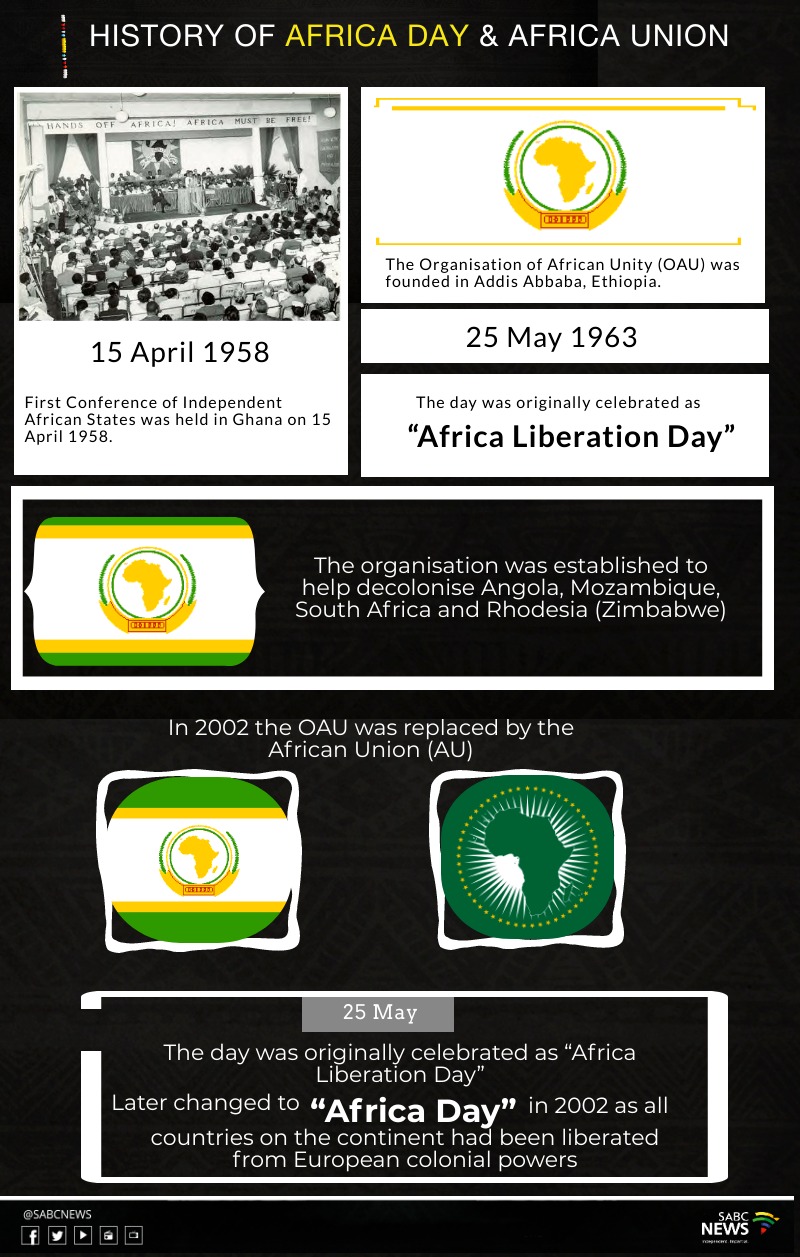
The economic impact of COVID-19 on Africa
Africa Day is being celebrated under the cloud of COVID-19 with the impact being felt across Africa. People’s lives have been greatly affected and the economic impact has been catastrophic.
According to Worldometer, Africa’s population as of May 2020 was over 1.33 billion as per United Nations’ estimates.
Research done by the World Bank says one in three Africans (over 420 million) lives below the Global Poverty Line.
Many African countries have implemented lockdowns amid the virus.
This has meant restricted movement, with many businesses not operating and in most cases, only essential services being allowed to continue.
Social gatherings have been banned under many of the lockdown regulations.
The impact of the virus has put economies of African nations under severe stress with many seeking help from organisations like the International Monetary Fund and the World Bank.
Countries have also pledged money within their economies to lessen the blow the virus has had on businesses and people’s livelihoods.
Silencing the guns in Africa
Agenda 2063 of the African Union lists 15 flagship projects as the key programmes and initiatives to accelerate Africa’s economic growth and development as well as to promote a common African identity through the celebration of our history and our vibrant culture.
One of these flagship projects is “Silencing the Guns”.
In his acceptance speech as the Chair of the African Union (AU) on February 9th 2020, Ramaphosa expressly stated his commitment to make a “contribution to promote peace and security in our collective effort to “Silence the Guns”, emphasising the important agency of the “AU Peace and Security Council, the AU Commission and the collective membership” to “focus our efforts on conflict resolution across the African continent, especially those experiencing protracted conflicts”.
In the video below: Lucky Masilela who is the CEO of ZA Central registry, elaborates on the issue of “Silencing the Guns”.


